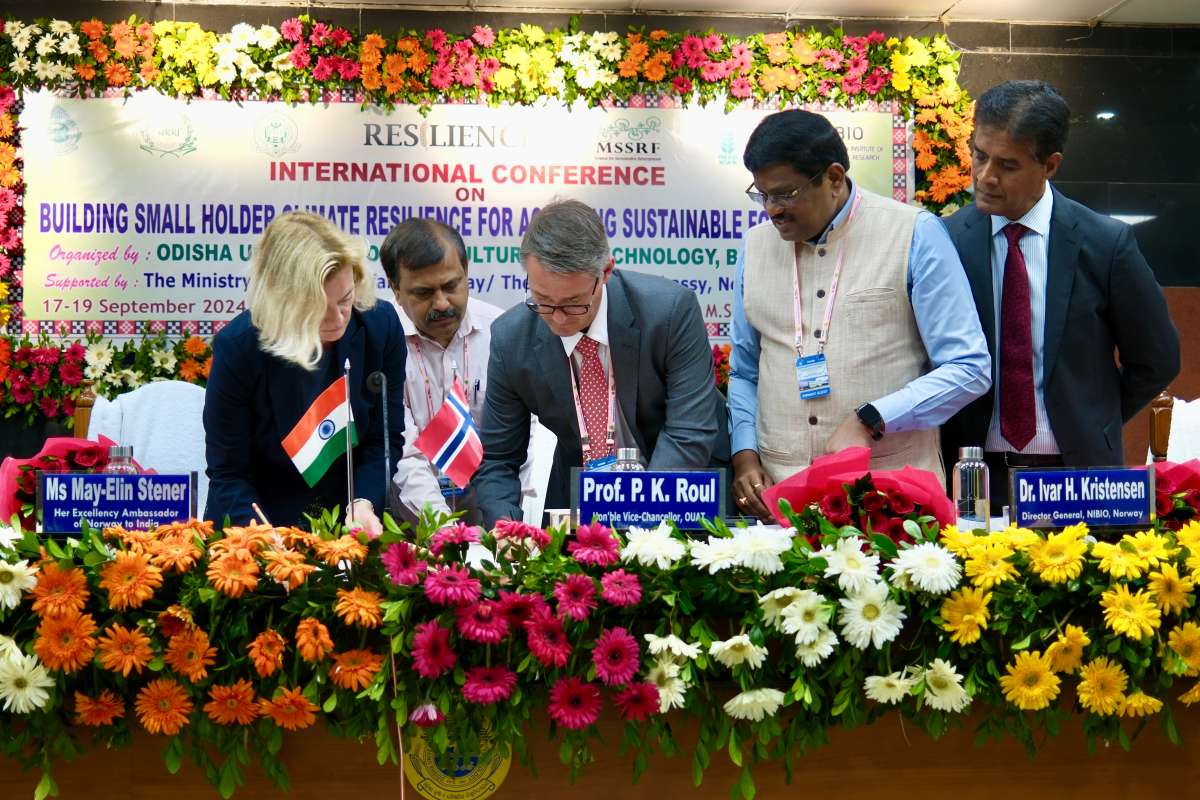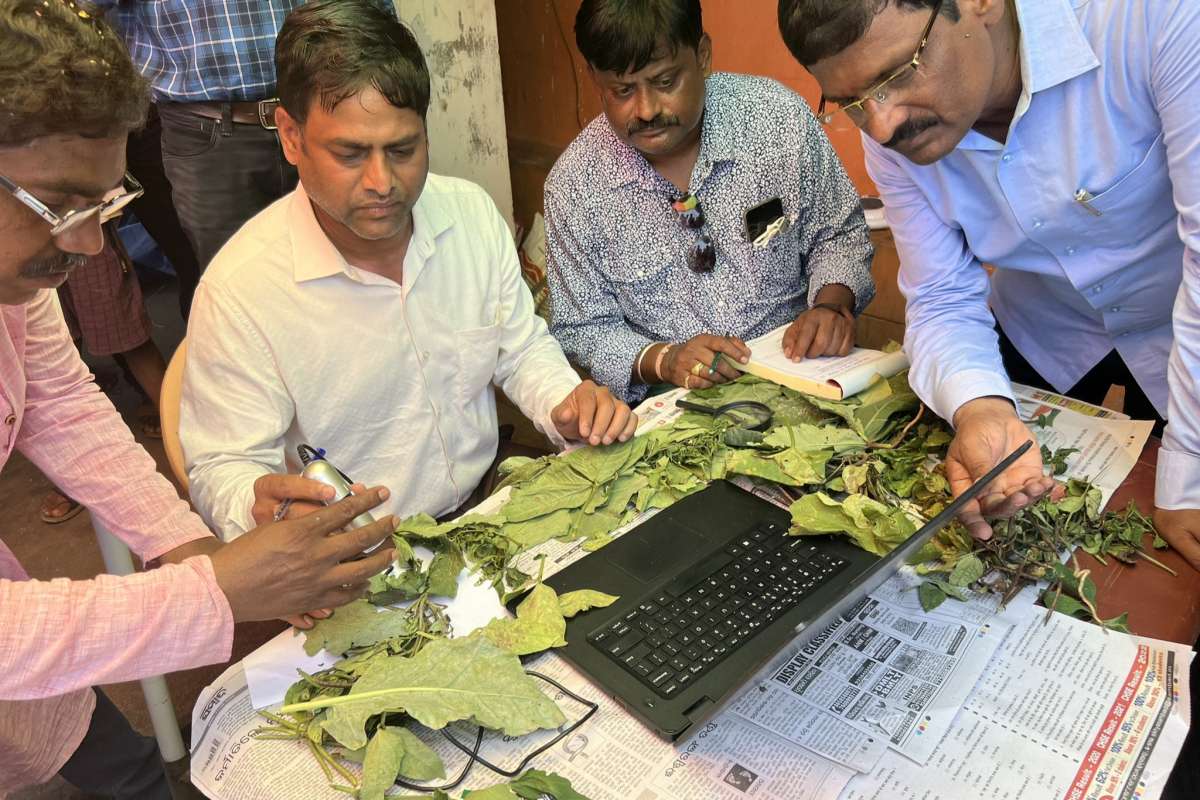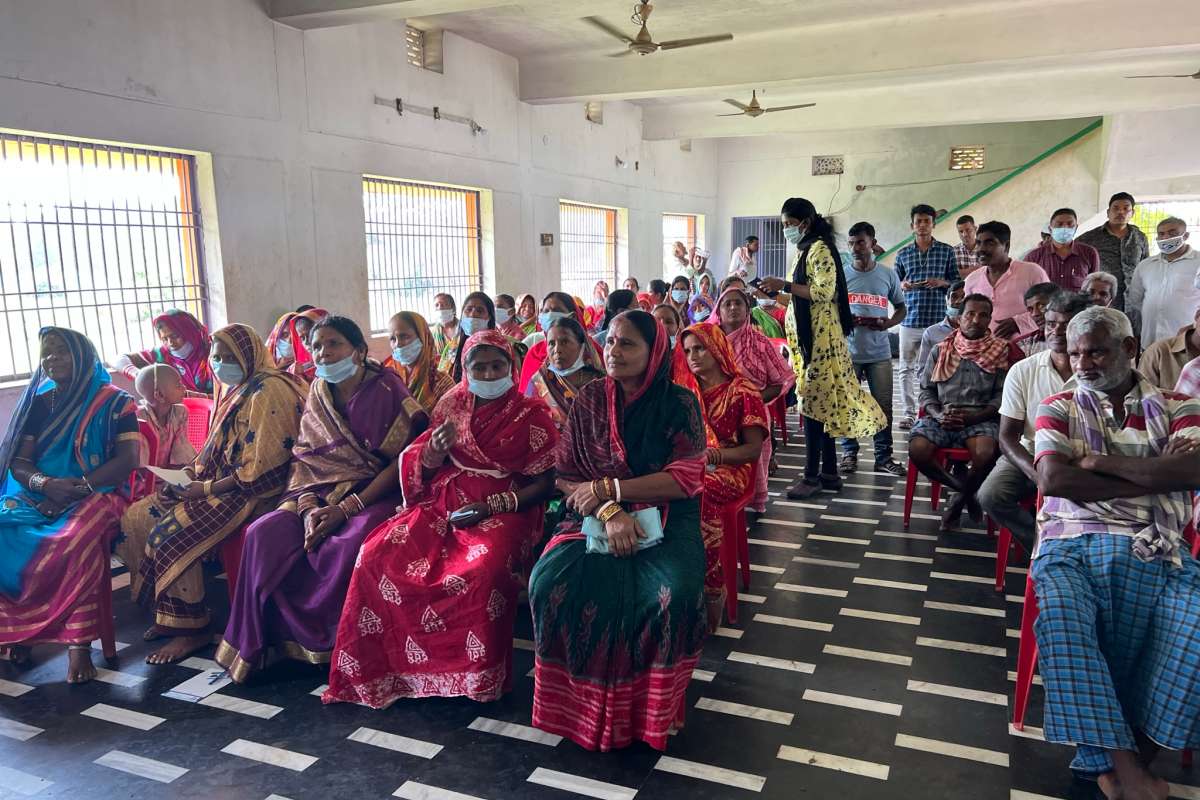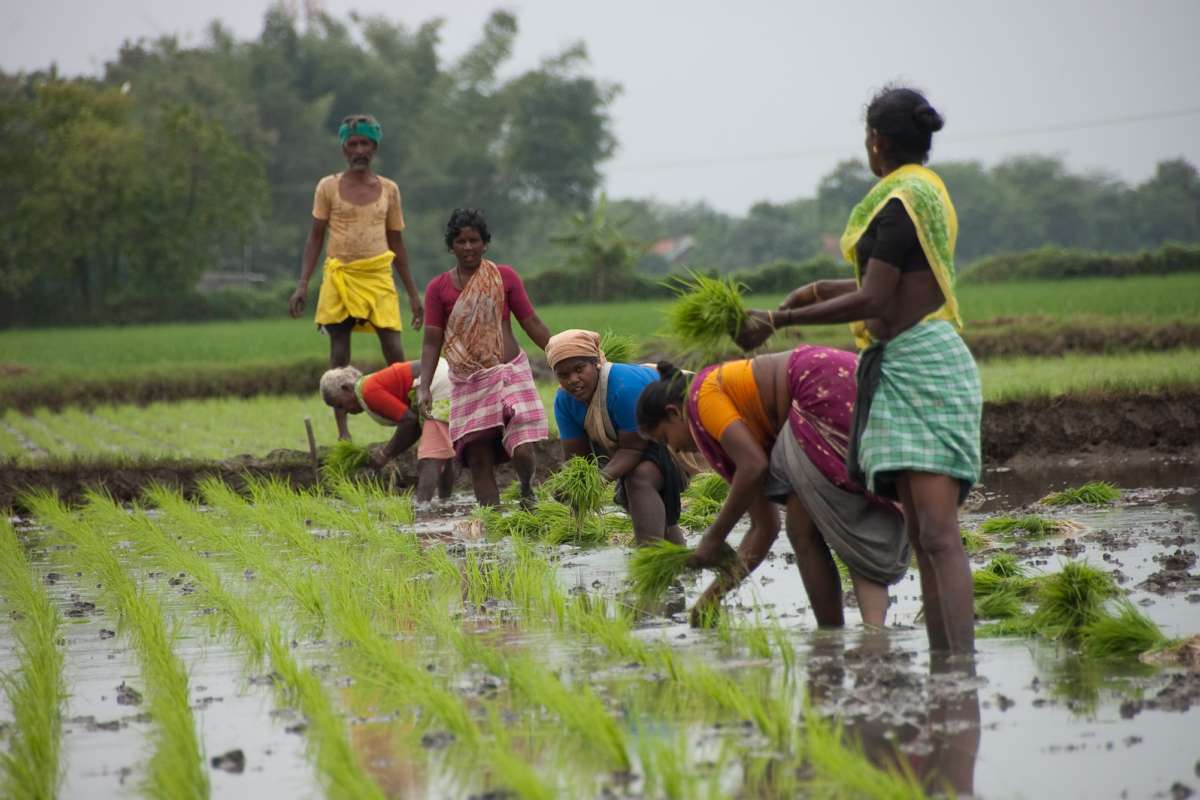RESILIENCE project empowers Indian smallholders: final conference marks successful conclusion
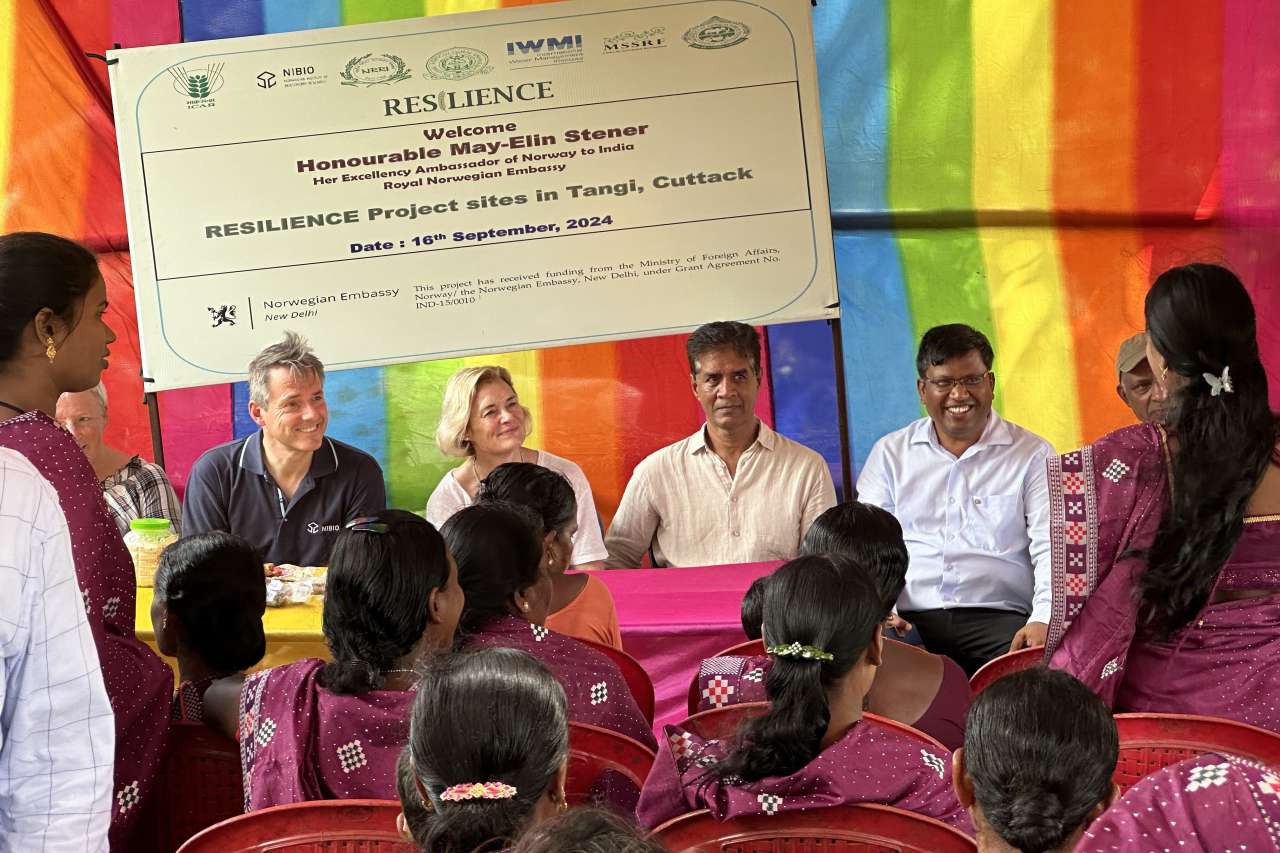
On September 16, Norwegian Ambassador Ms May-Elin Stener and NIBIO’s CEO Ivar Horneland visited some of the Resilience project sites. Sitting by the table here are (from left to right); Senior Adviser Hanne Sørlie, NIBIO, NIBIO's CEO Ivar Horneland Kristensen, HE Ms May-Elin Stener from the Royal Norwegian Embassy, Project Coordinator and Senior Research Scientist Dr. Udaya Sekhar Nagothu, NIBIO, Dr. A. K. Nayak, Director ICAR-NRRI Cuttack, and Research Scientist Mehreteab Tesfai from NIBIO. Photo: Ragnar Våga Pedersen
Since 2018, the Resilience project has made significant strides in bolstering smallholders' resilience to climate change and strengthening market value chains for agricultural produce in Assam and Odisha in India.
In India, over 80% of the farming community consists of smallholder farmers, who are not only the backbone of rural livelihoods, but also essential to national food security.
These farmers are increasingly vulnerable to the growing impacts of climate change - facing erratic weather patterns, droughts, floods, and cyclones. With limited resources and access to modern technology, millions of smallholders struggle to adapt while maintaining productivity. Compounding this challenge is their limited access to efficient market systems, making it difficult to sell their produce profitably.
The primary objective of the Resilience project has been to support Indian smallholder farmers in adapting to the growing challenges posed by climate and economic shifts.
By focusing on climate-smart agriculture and agroecological approaches, the project has empowered farmers in Assam and Odisha to overcome vulnerabilities, adopt sustainable farming methods, and integrate them into profitable market systems.
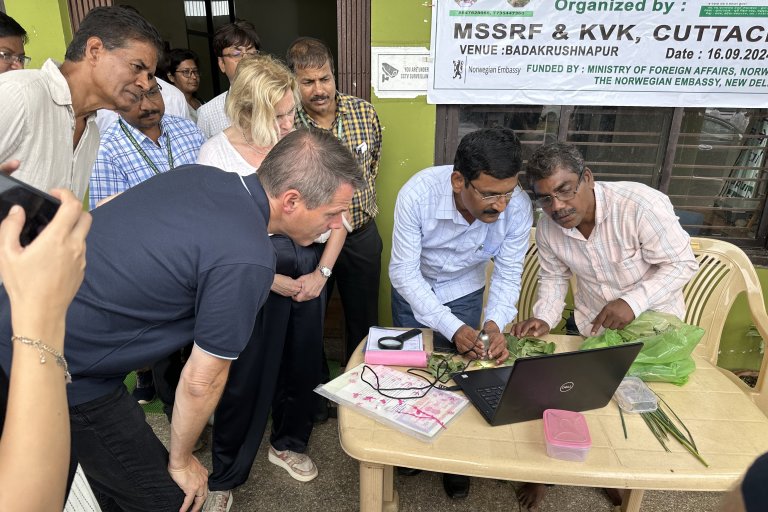
Final conference held in Bhubaneswar
On September 17-19, the project concluded with an international conference on building smallholder climate resilience for achieving sustainable food systems. The conference was held at the Odisha University of Agriculture and Technology in Bhubaneswar in India.
In his address, Resilience Coordinator and Senior Research Scientist and Director of NIBIO’s Centre of Development (CID), Dr Udaya Sekhar Nagothu, acknowledged the timeliness and relevance of the conference topic for India and the region, given the urgent need for resilience measures to address escalating climate impacts on food security and economic stability.
"We are in an unchartered territory of climate change, with an increasing frequency of extreme weather events like floods, heatwaves, and temperature fluctuations severely impacting global security and the livelihood of millions of people,” he said.
"Simultaneously, unsustainable food production accounts for one-third of global greenhouse gas emissions, and smallholders are the most vulnerable to climate variability. Building resilience is essential for safeguarding food security and economic stability in India and other countries facing similar challenges.”
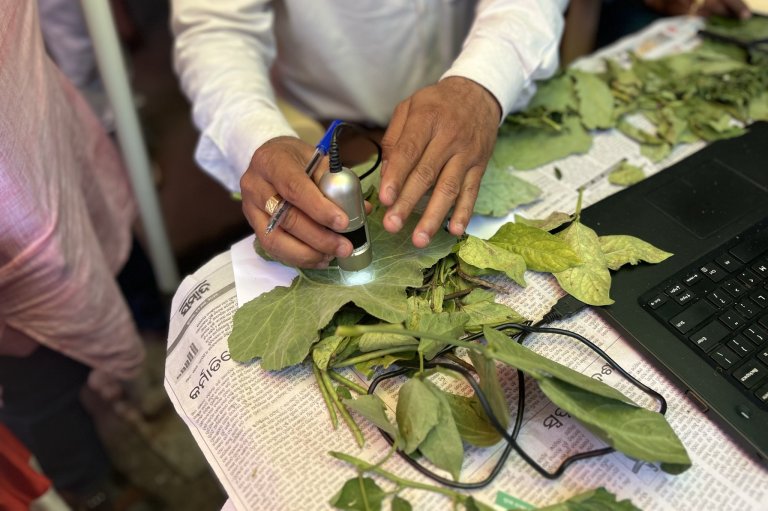
Collaboration is key
In his speech, NIBIO’s CEO Ivar Horneland Kristensen stressed the importance of collaborative efforts and a sustainable bioeconomy to solve the issues at hand.
“Our world faces a myriad of challenges, and we cannot afford to overlook their magnitude. Global warming is accelerating at a worrying pace, threatening ecosystems, livelihoods, and most critically, food security. These issues affect not just isolated regions but are global challenges, demanding collective, innovative solutions,” he said in his speech.
“The bioeconomy offers a transformative approach to sustainable development by ensuring food security, fostering rural economic growth, and creating jobs while protecting the environment, emphasizing the importance of collective efforts, especially in agriculture-dependent countries like India,” he continued.
“The principles of sustainable development, first articulated by the Brundtland Commission, remind us that our development must meet today’s needs without compromising the ability of future generations to meet theirs. International research and collaboration is strongly needed to fulfil that vision.”
Also participating at the conference, was HE Ms May-Elin Stener, Ambassador of Norway to India and Sri Lanka. She said she was very pleased that NIBIO along with Indian partners such as the Odisha University of Agriculture Technology, National Rice Research Institute and others have succeeded in introducing several climate smart agriculture technologies, tools and apps for upscaling in Assam and Odisha.
“An important priority in Norway’s development policy is to fight hunger and increase global food security. Our efforts are aimed to bring benefits both to people and to the environment, locally and globally,” she said.
“I am excited to see the results from this important project, that Norway has supported since 2018. NIBIO has been and will continue to be an important partner for us when it comes to climate adaptation and climate resilience.”
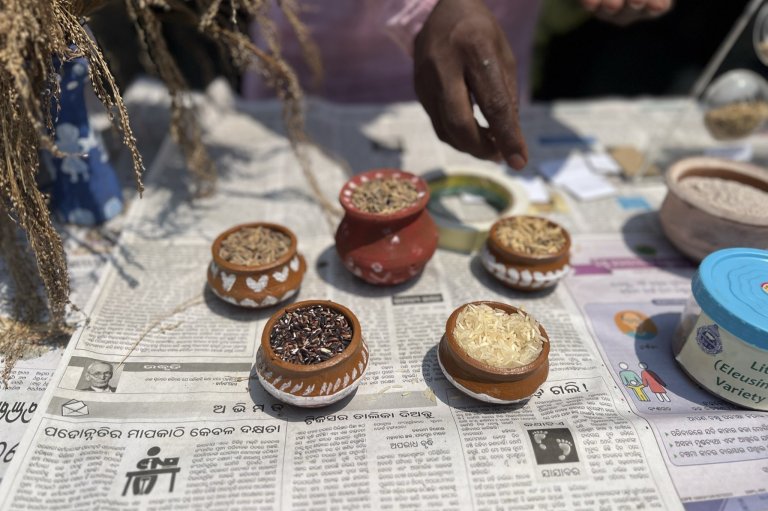
Climate-smart innovations boost resilience
A key focus of the Resilience project has been to assess the vulnerability of smallholder farmers to climate impacts. The assessment revealed that approximately 67% of farmers in both Assam and Odisha had experienced significant climate related disruptions, such as floods, droughts, and cyclones, in the last decade.
In response, the project identified coping strategies already employed by farmers, including adjusting sowing/harvesting times, shifting to alternative crops, and increasing the use of bio-fertilizers. The findings provided the project with a basis for targeted support and adaptation measures.
18 climate-smart agriculture (CSA) technologies were introduced and tested through farmer-led demonstration trials. Among the most successful technologies was the introduction of climate-resilient rice varieties like Ranjit Sub-1 and Bahadur Sub-1, which are tolerant to flooding in Assam, and Swarna Shreya, known for its drought tolerance.
“These innovations have helped the farmers maintain productivity despite the challenges posed by climate change,” says Dr Nagothu.
The project has also facilitated the upscaling and commercialization of the purple rice variety Labanya, reaching 19 states in India through online platforms such as Amazon.
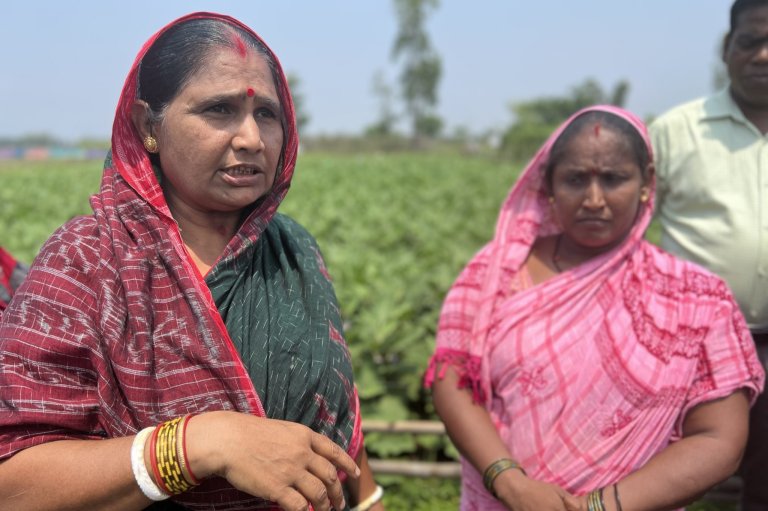
Advancing gender equality
To ensure long-term impact, the project established 20 Village Knowledge Centers (VKCs), which serve as hubs for knowledge exchange. These VKCs, both physical and virtual, provide smallholders, including women farmers, with access to critical agricultural information using various ICT tools.
So far more than 54,000 farmers in Assam and Odisha, of which nearly 20,000 are women, have benefited from training, consultations, and virtual learning sessions.
“Integrating both men and women in the climate initiatives has been of key importance in the project’s effort to enhance climate resilience on smallholder farms,” says Dr Nagothu.
These efforts were also acknowledged by HE Ms May-Elin Stener at the conference.
“We know that women play several key roles in the food production chain, from processing and sales to cooking and distribution in households. Nevertheless, the role women play in the value chain is less recognized than that of men,” she said.
She added that earlier this year, a resolution was passed in the UN general Assembly to declare 2026 as the International Year of the Woman Farmer.
“The International Year of the Woman Farmer will serve as a platform for highlighting the barriers and challenges that women farmers face across agrifood systems – and also the adoption of effective policies and actions to address such challenges,” she said. “It will also promote gender equality and the empowerment of all women in agriculture.”
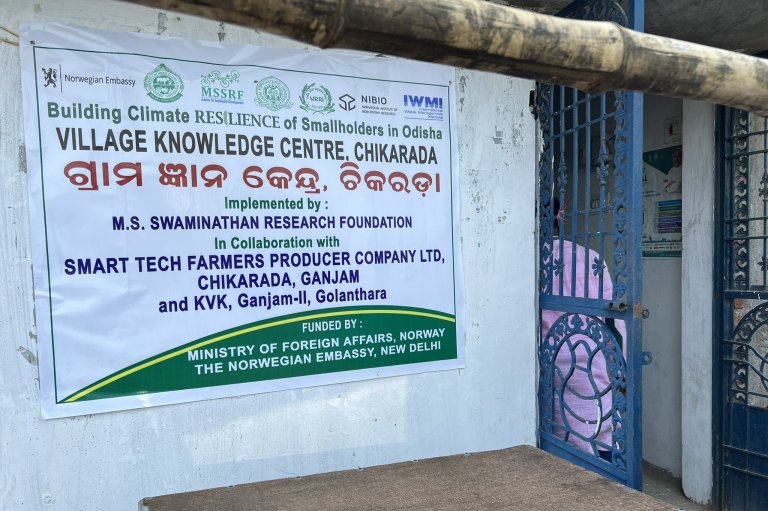
New UPSCALE project launched
Throughout its duration, the RESILIENCE project has made strides in shaping agricultural policies in Assam and Odisha. By establishing Stakeholder Advisory Committees and conducting regular policy dialogue sessions, the project has successfully integrated CSA technologies, such as direct-seeded rice, into state-level climate change action plans for 2021–2030.
Although the Resilience project has now ended, there is still a lot that needs to be done. At the conference In Bhubaneswar, an agreement was signed for the launch of the UPSCALE project, set to begin in October 2024 and run through December 2028. This new initiative aims to scale up sustainable and climate-resilient rice and agricultural technologies, building on evidence-based interventions from RESILIENCE and other projects.
“I am proud to announce that we will continue our partnership with NIBIO and the Indian partners for a second project phase in Odisha and Assam,” said Norwegian Ambassador Ms May-Elin Stener.
“The new project UPSCALE is in line with the recently launched strategy of the Norwegian Government, entitled Combining forces against hunger - a policy to improve food self-sufficiency. This strategy is an important part of Norway’s broad commitment to the 2030 Agenda for Sustainable Development. I am very happy that we have NIBIO and the Indian partner institutions on board to help fulfil it.”
Contacts

RESILIENCE PROJECT (2018-2024)
RESILIENCE - Building Climate Resilience of Indian Smallholders through Sustainable Intensification and Agroecological Farming Systems to Strengthen Food and Nutrition Security.
Partners
NIBIO - Norwegian Institute of Bioeconomy Research (Coordinator)
AAU - Assam Agricultural University
NRRI - National Rice Research Institute
OUAT - Orissa University of Technology and Agriculture
IWMI - International Water Management Institute
MSSRF - M. S. Swaminathan Research Foundation
Total budget: 26.6 million NOK
Funded by: The Ministry of Foreign Affairs - the Royal Norwegian Embassy in New Delhi, India.
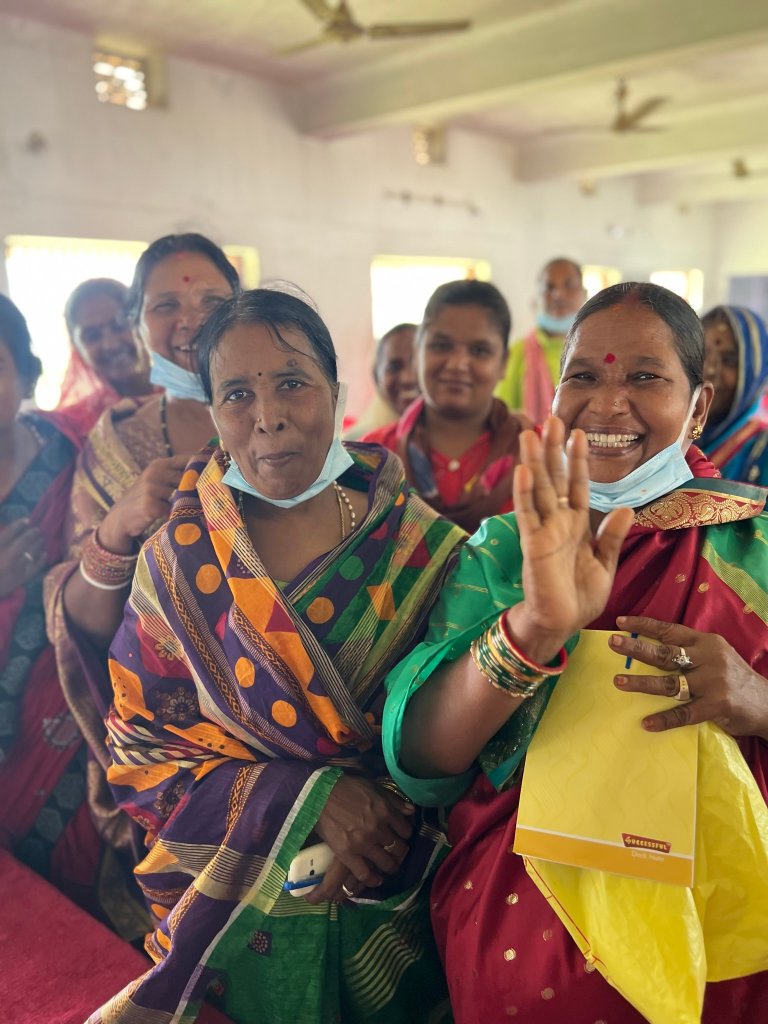
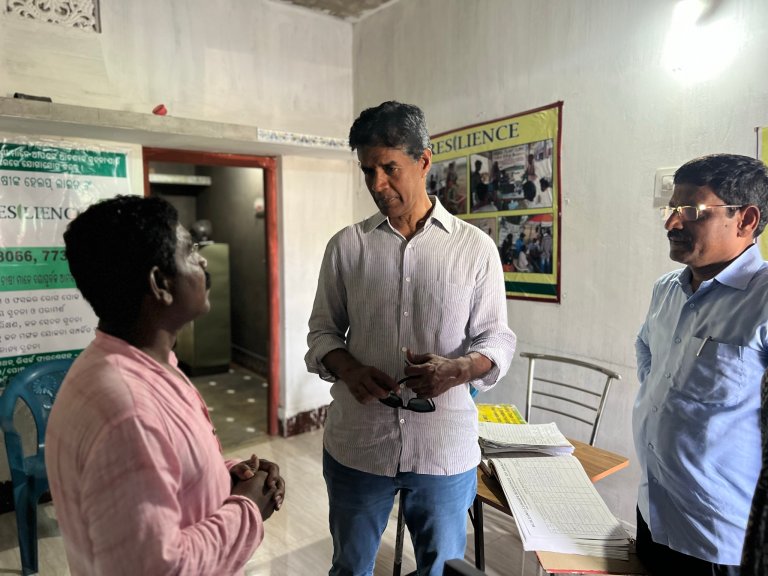
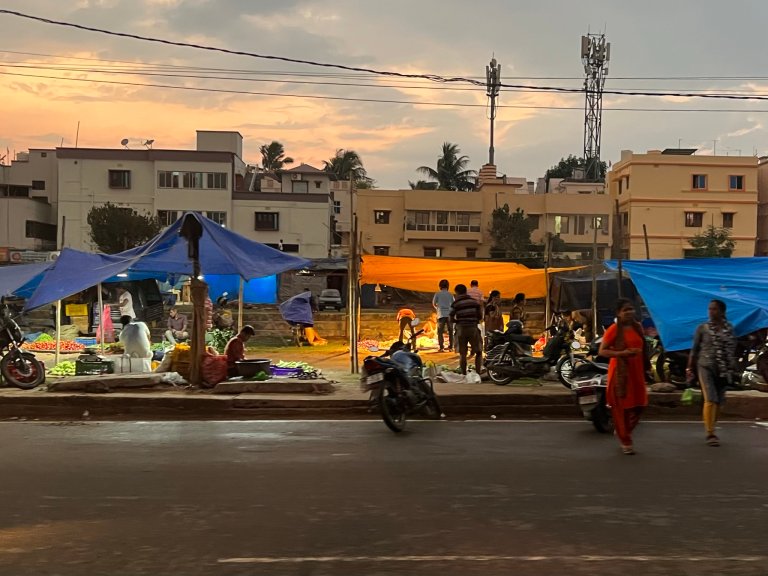
Contacts


